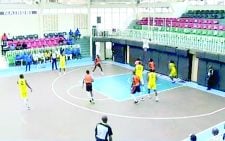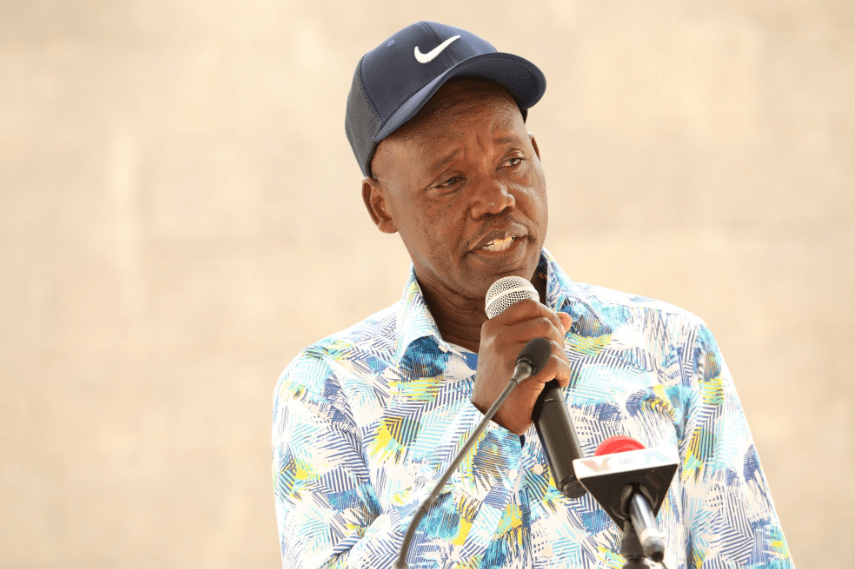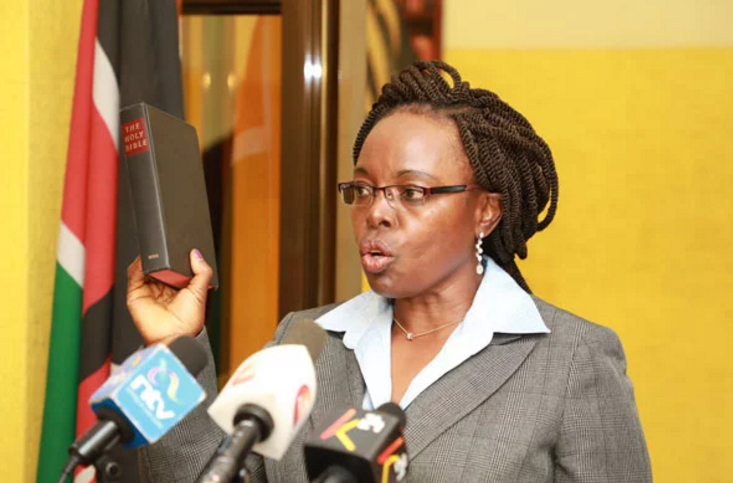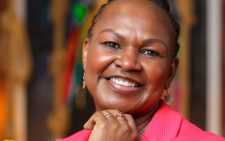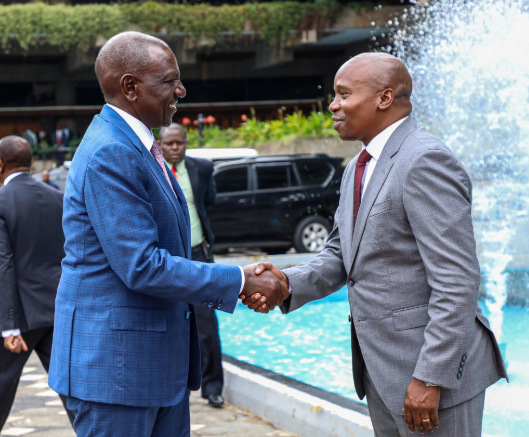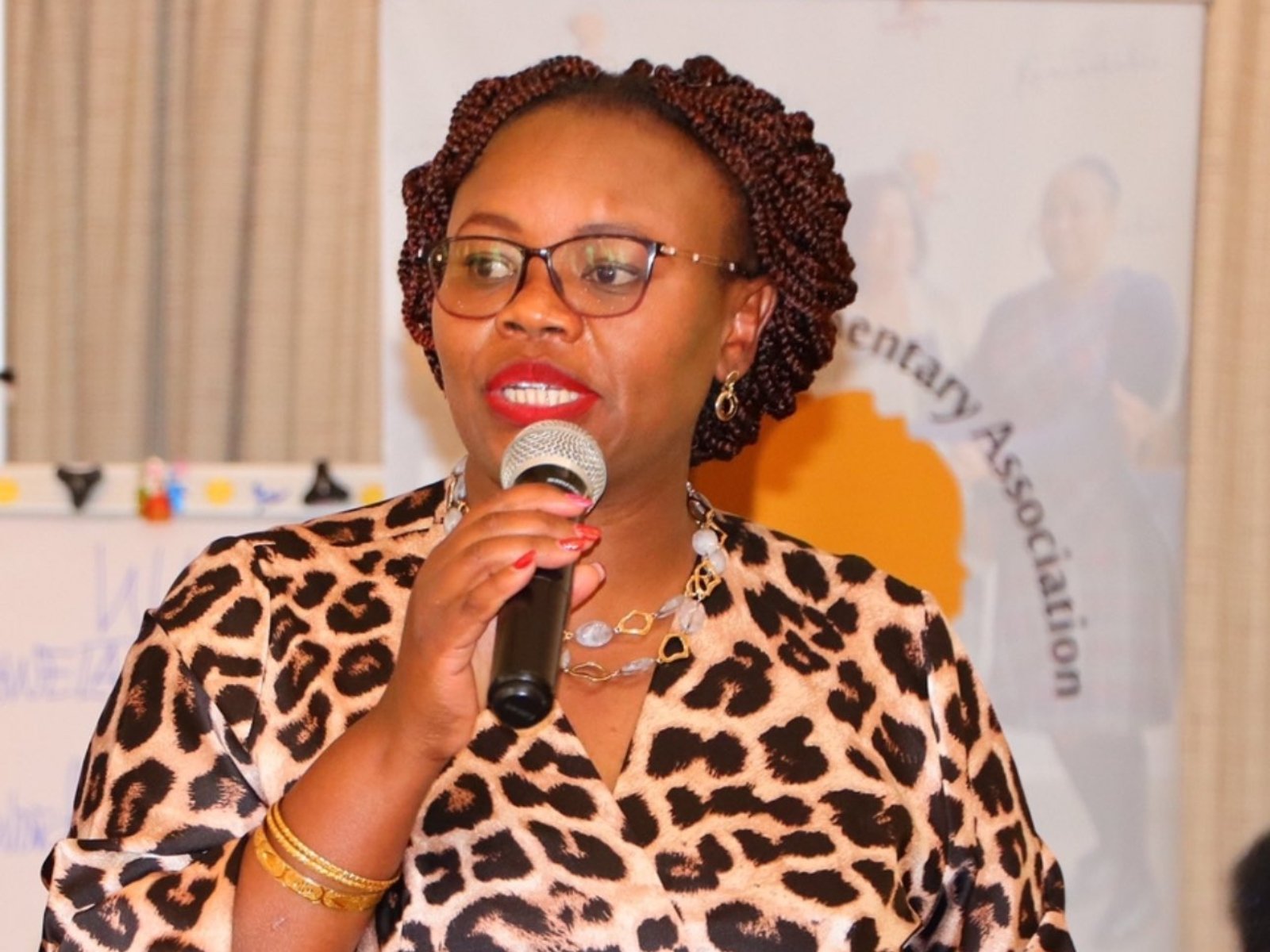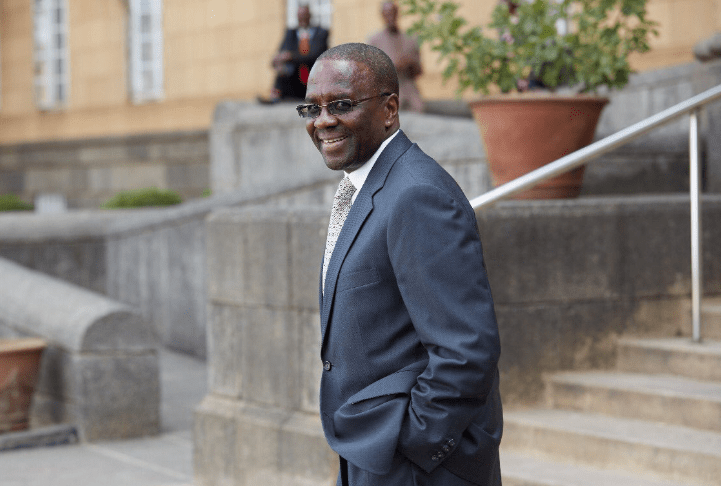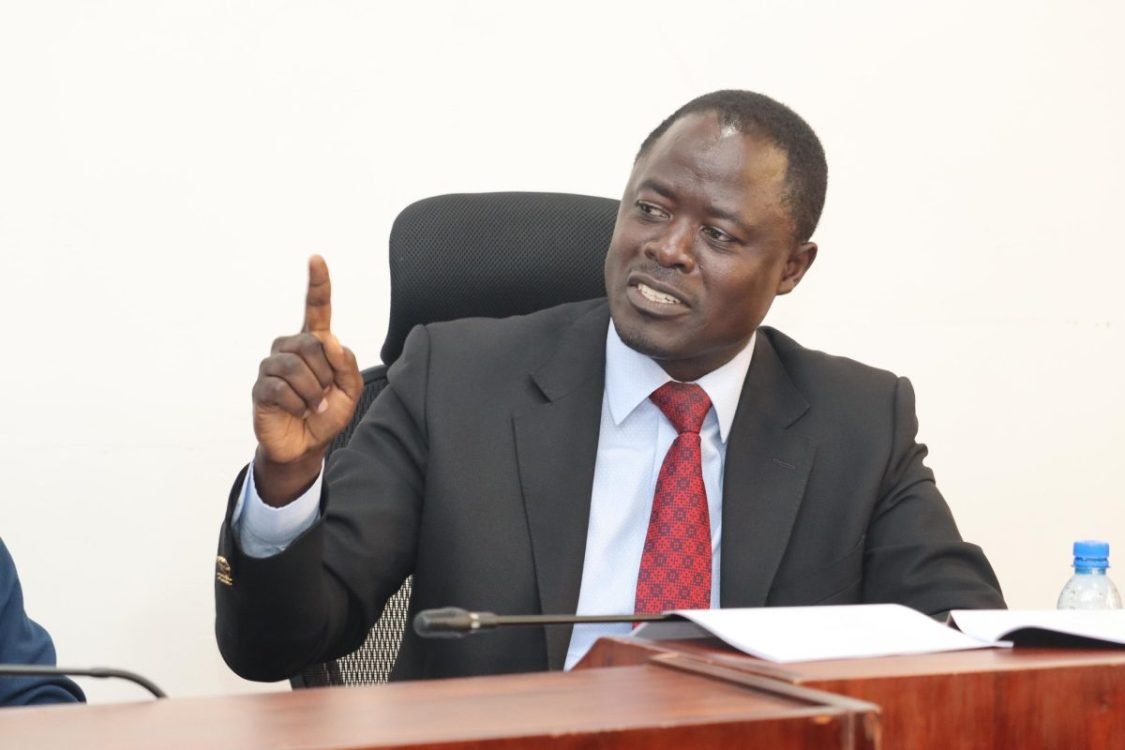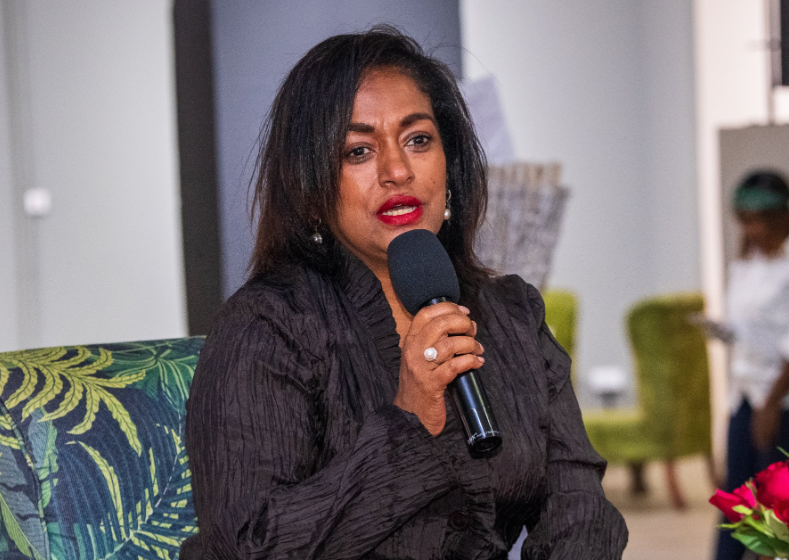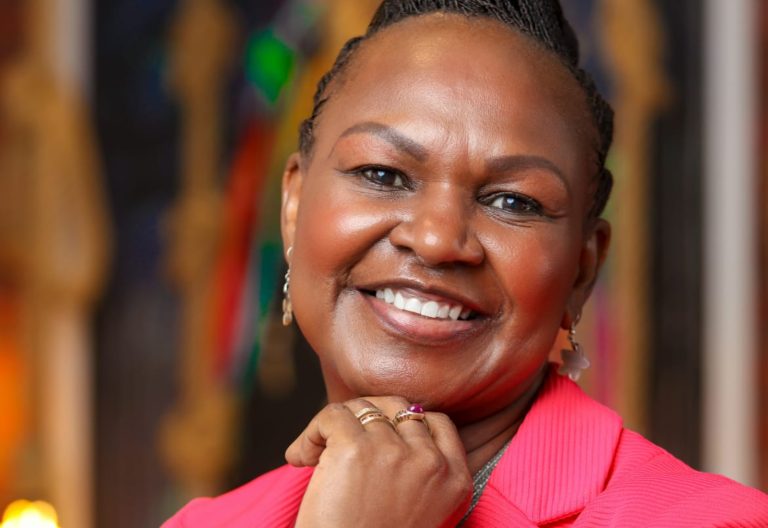Kenyan coach making waves in United States
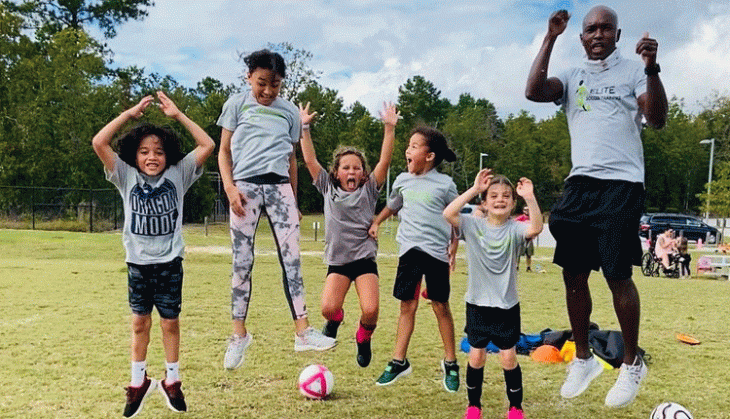
It is on a serene Friday morning in the port city of Mombasa, an ideal time to work out before the day gets oppressively hot.
At the Kenya Ports Authority’s Mbaraki Sports Ground stands David Kenga – a Kenyan born US-based professional football coach.
He is busy passing verbal and non-verbal instructions to players on the pitch as they execute footballing drills with jaw-dropping dexterity.
After spending about an hour or so taking a group of local coaches through a theory class, the trainer is now keen to see the theoretical perspective translate into practicality on the pitch.
Through theory classes and practical sessions, Kenga has successfully shown the coaches how to design a training session as well as “attacking in the final third to create goal scoring opportunities.”
He has also taken them through some of the latest coaching techniques us “progression of the ball from the defensive third” also known as “playing out from the back” which are some of the latest approaches adopted by coaches in top football leagues in the world like the English Premier League, Italy’s Serie A, Germany’s Bundesliga and the French Ligue 1.
Own outreach
Kenga is founder and owner of Elite Soccer Academy in the USA, one of the world’s best football academies, he established in South Carolina in 2016.
Currently he is on a mission to convert the untapped Coast talents into a football powerhouse.
“It is such a great opportunity actually to come here and share with the coaches on how to develop players and how to design an effective training session. I have asked them questions about their environment,” the trainer says.
The holder of US soccer’s National A-Youth Coaching License – the highest in youth soccer in the USA – is an embodiment of an ultimate success, fused by absolute talent, passion and sheer academic acumen.
Born and raised in the Kizingo area in Mombasa, Kenga schooled in Mombasa Primary and then went to Allidina Visram High School where he sat for his Kenya Certificate of Secondary Education (KCSE) in 2000 and scored a B+ (plus).
“I didn’t wake up one day and go to America. I grew up in Kizingo. First we used to live at GTI where we used to play soccer at Aga Khan Grounds then we later moved to Customs and shifted our practicing base to Mbaraki and Kongoboys.
So I experienced all the challenges and that’s why I always want to come back and help develop local talents,” he says adding: “I believe if I had someone like me to guide me back then, I could be way ahead by now.”
After his KCSE in 2000, Kenga ventured into active football immediately, with a brief stint at Coast Stars, and then moved to Tusker FC between 2000 and 2001 and Thika United between 2001 and 2002 before securing a scholarship to go and study in the United States.
He left for the USA in 2003 to join Winthrop University in USA to study Biochemistry where he played college football for three years.
“I came back to Kenya in 2006 to open up our first academy in Tezo Kilifi County. I was saddened to see most of my former high school friends engulfed in drugs and alcoholism.
Some of my colleagues were ravaged by drugs and other social vices and I took it upon myself to see how I can start my own outreach to try and change things by donating equipment here and there to try and motivate the kids and keep them off the streets and share my story,” recalls Kenga.
As a certainty to excel in sports, he reckons that academics should be considered a top priority.
He observes that one of the challenges that the country’s football has been facing is that “we have people with excellent talents, but they don’t want to go to school.”
For his case, unlike some of his colleagues, he says he had no option but to prioritise education alongside his talent in soccer.
“My parents were very strict. In fact they never wanted me to touch football.
They wanted me to stick to books especially because my father was a doctor.
However, I would still sneak and find ways to play. But I think from that experience, if you can excel in studies you even become more marketable.
There are high chances of being recruited as coaches will believe you are disciplined,” he says recalling that he got a scholarship to study in the USA through Coach Bob Oyugi after he saw his KCSE performance.
Coach Oyugi was the brains behind tens of Kenyan sportsmen with academic acumen moving to the USA to study on sports sponsorships in a programme that was formed in 1997.
It benefitted a number of top sports personalities including the then Harambee Stars talents Bonaventure Maruti, Paul Oyuga, Vincent Kwarula, Erick ‘Kantona’ Ochieng, Allan Odhiambo, among others.
“There are so many of us who have gone there and studied. We have Gerald Origi, Tom Odhiambo, John ‘Baresi’ Odhiambo, Simon Mulama and now they are doing well.
Baresi has his own company making soccer balls, Edwin Odipo is a professor in the US and he was a big player here in Kenya,” says Kenga.
The academy equips kids with basic football skills from as young as two years. He also carries out training drills and challenges on his social media sessions and also posts them on his mobile app called Elite soccer.
Modern practices
The coach warns fellow sports personalities not to put all their eggs in one basket as it could translate to a crisis in future.
“If you put all your eggs in one basket, once soccer is done if you get to 36 or 37 what are you going to do?
For me right now if I am not only able to coach, I can teach biology,” he says.
In the same way, he says he wants local kids to get opportunities to follow the path he followed.
“My plan is to bring coaches from the USA to recruit players and make the coast a hub for player recruitment.
However, we must start educating the coaches on how to develop players that fit these key qualities that the foreign coaches are looking for.
I recently received my A License which is the highest coaching license in youth soccer after one year of classes,” he says, adding he has already started mentoring kids in Kenya.
The 37-year-old has rolled out a number of football programmes in Kilifi County and is in the process of putting up a soccer complex in Kaloleni.
With the help of his friends and contacts, Kenga collects soccer equipment in the form of jerseys, shoes and balls and sends them to Kenya.
“There is a player who went through my academy in Kilifi and he called me and told me that he got an A- and right now he is in America doing a masters in engineering.
So that’s life changing and we are trying to do more of that,” says Kenga who believes the lack of modern practices of coaching and player development is a major undoing for football in Kenya.
“In Kenya there is no long term plan to develop players. Also if we equip the coaches with the knowledge and coaching styles there’s inadequate access to training equipment which affects the performance environment that’s critical in developing the players.
We haven’t even established what key qualities a national team player should have,” Kenga says.
